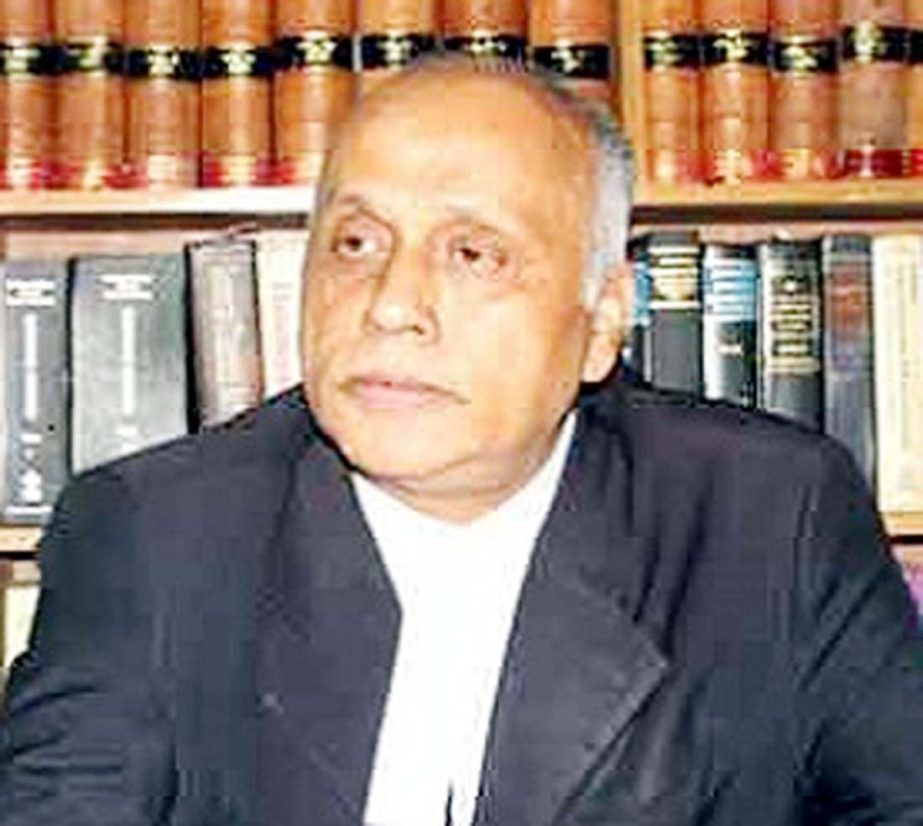
Md Khurshid Alam Khan:
Sub-section 3 of the Section 6 of the Criminal Law Amendment Act, 1958 provides that the provision of Chapter XX of the Code Criminal Procedure, 1898, shall apply to trial of cases under the Act, in so far as they are not inconsistent with the provisions of the Act. Chapter XX of the Code of Criminal Procedure deals with the trial of cases by the Magistrates Section 241A CrPC deals with discharged and section 242 CrPC deals with when charge to be framed.
241A of the Code of Criminal Procedure
When accused shall be discharged – When the accused appears or is brought before the Special Judge and if the Special Judge upon consideration of the record of the case and the documents submitted therewith and making such examination, if any, of the accused as the Special Judge thinks necessary and after giving the prosecution and the accused an opportunity of being heard, considers the charge to be groundless, he shall discharge the accused and record his reasons for so doing.
The procedure prescribed by the section should be strictly followed. An order of discharge can be made only according to the words of the section that no case has been made out. The Special Judge should first take into consideration the prosecution case as given in FIR, charge-sheet, statements of witnesses recorded by the investigating officer of the Durnity Daman Commission and the documents produced and also hear the defence and then apply the law to the Criminal acts to find whether there is prima-facie case and the Special Judge can discharge the accused if no case has been made out.
In the case of Moudud Ahmed Vs. The State reported in 16 BLD (AD) 27 it has been held that in framing charge the trial Court will only see if on the basis of the materials collected by the prosecution a prima facie case to go for the trial has been made out against the accused. The existence of a prima facie case to go for trial justifies the framing of charges.
6 BLC 282- Taher Hossain Rushdi Vs. State – Sections 241A, 242, 256C, 265D (1) and 439- In the instant case there are detailed allegations against the accused petitioner and his accomplices and during the investigation it is revealed that the papers produced before the investigating agency were also examined by the handwriting expert and it was found that the documents in question and bills and vouchers were fictitious and hence there is no illegality in framing charges against the petitioners. The view taken by the High Court Division has been affirmed by Appellate Division reported in 7 MLR (AD) 116.
In the case of H.M. Ershad Vs. The State reported in 45 DLR 533 it has been held that Section 241 of the Code of Criminal Procedure casts a duty on the Judge to discharge the accused when there is no ground for proceeding with the case and his order must record reasons therefore. The Court has jurisdiction to pass an order of discharge if it was satisfied that the charge was groundless for which it was to give reasons but if it framed charge it was not required of the court to record reasons. In interpreting the provisions sections 241 and 242 of the Crl.P.C. the High Court Division held that the Court has jurisdiction to pass an order of discharge if he is satisfied that the charge is groundless and if he finds so, has to give reason but in framing charge it is not required for to record reason showing that there are grounds for framing charge, if it is enough if the Court is of opinion that there is ground the presumption that the accused has committed the offence. The formation of such opinion is dependant only on the application of judicial mind based on materials collected from the records of the case.
Begum Khaleda Zia Vs. State reported in 21 BLC (AD) 151 it has been held that the petitioner was on dock and the contents of charge had been read over to the petitioner who denied the charge and pleaded not guilty. In view of the contents of the order sheet, we are unable to accept the extraneous matter produced before the High Court Division and to observe that the contents of the charge had not been read over to the petitioner.
Begum Khaleda Zia Vs. State reported in 21 BLC (AD) 16 it has been further held that since from the prosecution papers disclosed prima-facie case against the petitioner there was no error in the order framing charge. Relying upon the extraneous matter it is difficult for the Appellate Division to accept the submission, in view of the facts that the order sheet shows that the petitioner, at the relevant time, was on dock and contents of charge had been read over to her who pleaded not guilty and claimed to be tried.
(Md Khurshid Alam Khan is Advocate, Supreme Court, and Editor,
Dhaka Law Reports).
— To Be Continued.

